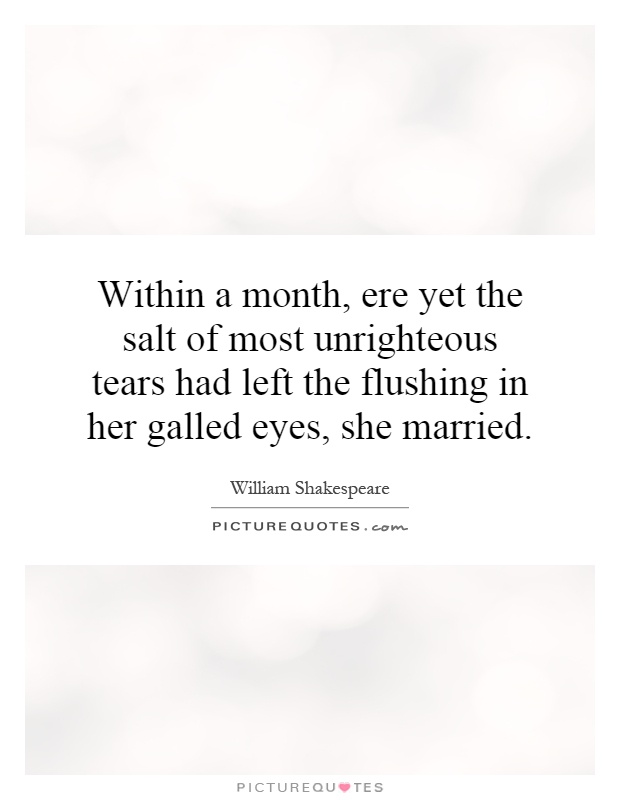Within a month, ere yet the salt of most unrighteous tears had left the flushing in her galled eyes, she married

Within a month, ere yet the salt of most unrighteous tears had left the flushing in her galled eyes, she married
The line "Within a month, ere yet the salt of most unrighteous tears had left the flushing in her galled eyes, she married" is from William Shakespeare's play Hamlet. This line is spoken by Hamlet in Act 1, Scene 2, as he expresses his grief and disbelief over his mother, Queen Gertrude, marrying his uncle, King Claudius, so soon after the death of his father, King Hamlet.The use of the word "unrighteous" in this line suggests that Hamlet views his mother's tears as insincere or unjustified. He believes that her quick remarriage is a betrayal of his father's memory and a sign of her lack of true mourning. The image of the salt from her tears still lingering in her eyes emphasizes the freshness of her grief and the haste with which she has moved on to a new relationship.
The phrase "galled eyes" further emphasizes the pain and discomfort that Hamlet feels at his mother's actions. The word "galled" suggests irritation or soreness, indicating that Hamlet is deeply wounded by his mother's betrayal. He cannot understand how she could so quickly forget his father and marry his uncle, whom he suspects of foul play in his father's death.
The use of the word "ere" in this line also suggests the speed and immediacy of Queen Gertrude's remarriage. Within a month of her husband's death, she has already married Claudius, showing a lack of respect for the memory of her deceased husband and a disregard for the feelings of her son.
Overall, this line highlights the themes of betrayal, grief, and haste in Hamlet. It sets the stage for the complex relationships and emotions that will unfold throughout the play, as Hamlet seeks to uncover the truth behind his father's death and grapples with the consequences of his mother's actions.












 Friendship Quotes
Friendship Quotes Love Quotes
Love Quotes Life Quotes
Life Quotes Funny Quotes
Funny Quotes Motivational Quotes
Motivational Quotes Inspirational Quotes
Inspirational Quotes